CULINARY MARVEL: CHEF NUMRA SIDDIQUI
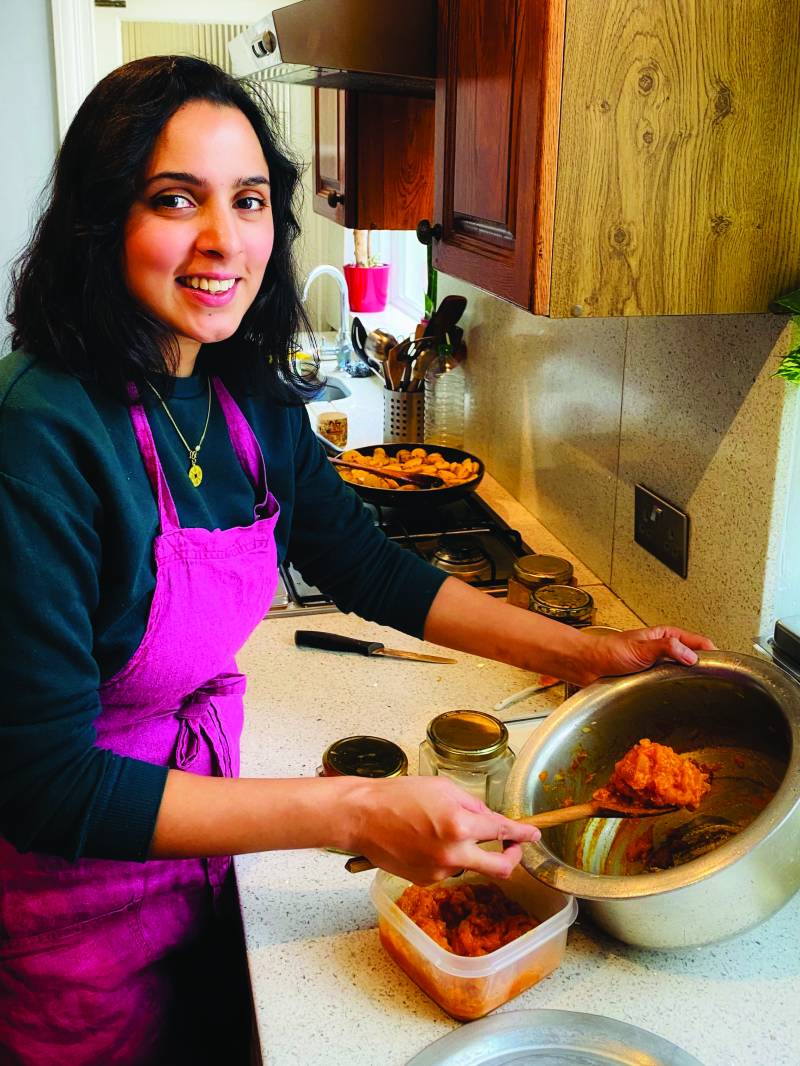
KEEPING THE TASTE OF PAKISTAN ALIVE IN THE HEART OF LONDON
Taking inspiration from the food tales of her grandmother to selling her father’s lunchtime favourite meal, the ‘bun kabab’ in London, Chef Numra is an explorer at heart and nowhere is that apparent more than her cooking. From starting her food career in 2014 to launching Empress Market, a pop-up Pakistani restaurant and catering brand in London, Chef Numra says her menus are inspired by her desi heritage and her urban London lifestyle. We spoke exclusively to the culinary maestro and found out more about her journey, challenges and future...
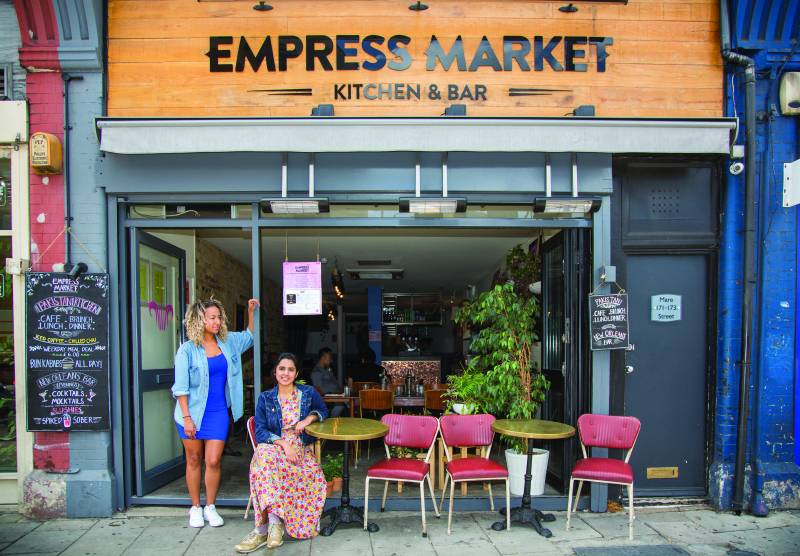
What exactly inspired Numra Siddiqui to be passionate about food and become a chef?
Bonding with my mum and nani over their cooking is at the heart of my passion for food. I’ve grown up with stories of my grandmother’s perfectly round rotis, (folk) tales of her catering my mother’s wedding in the back garden and the epic voyage of that coriander chutney family recipe travelling across borders and through generations of women. I was inspired by these stories to cook for my friends, the desi dawat dishes like Biryani as well as mastering the daily staples of daal and roti. My career aspirations, however, were far from being a chef and I regarded my passion for food as a fun pastime. I studied media at university and worked in documentary filmmaking for some years before. Over the years my love for storytelling and food came together; as a result of which, my hobby for cooking evolved into a journey of becoming a professional chef.
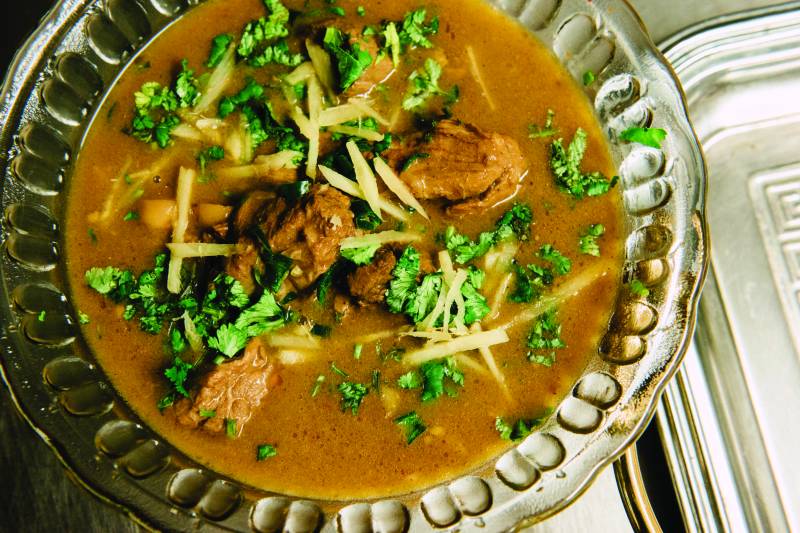
Tell us a little bit about your journey of starting your own culinary business and making Empress Market what it is today.
My food journey began in 2014 when I launched 'Bun Kabab', a market stall selling the popular Karachi street food. I thought it would be a fun weekend hobby alongside my full-time job, selling my dad’s favourite childhood lunchtime snack, at local London markets. One thing led to another and my food stall became a full-time gig! A few years after that, I started hosting supper clubs - multi-course experiential dining events centred around Pakistani culture. In 2017, I launched 'Empress Market', a pop-up Pakistani restaurant and catering brand and since then I have launched variations of the concept around London. I have freelanced as a chef in other kitchens alongside my business over the years as well. I have also formally studied at Leith’s School of Food, allowing me to build on my Pakistani culinary sensibility and develop a multicultural style of cooking. My menus are inspired by my desi heritage, the places I have travelled to and my urban London lifestyle.
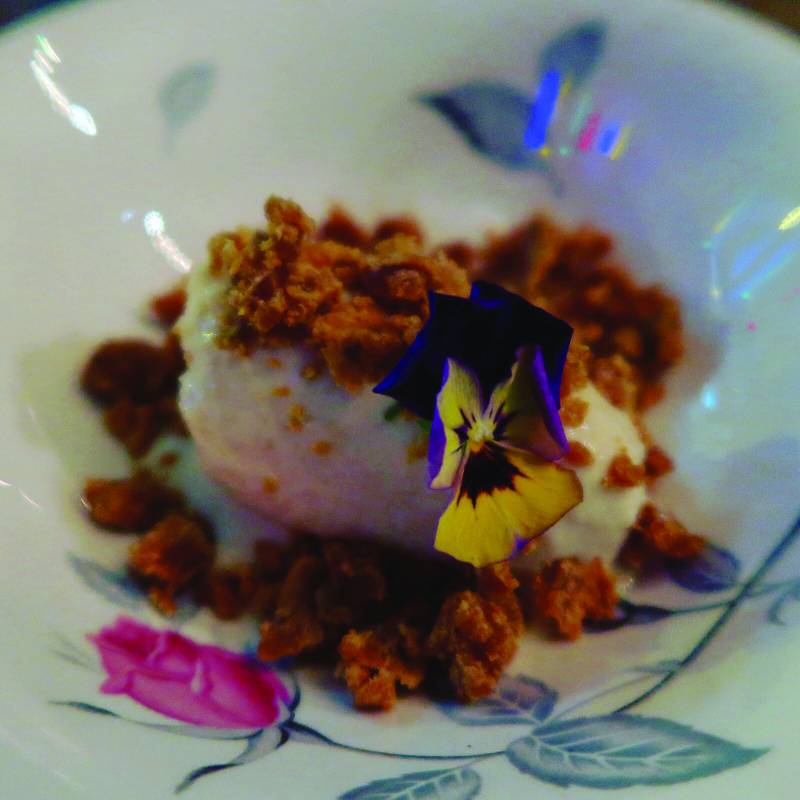
How important is it for you to incorporate Pakistani flavors and techniques in your dishes?
Pakistani flavours and techniques are the foundation of my culinary aesthetic. Pakistani food is really about understanding a handful of good quality ingredients and focusing on the process. Slow cooking shami kababs is about patience; whereas, making rotis is about that split second between perfection and failure! My mum has enforced this culinary training, something I have honed through practice, trial and error.
What are the ingredients that make a Pakistani restaurant in London truly contemporary today?
Ironically, ‘nostalgia’ is the key ingredient to contemporary Pakistani restaurants in London. Desi folk like eating at Pakistani restaurants for a taste of home, to be surrounded by their own people. We don’t go to eat daal chawal but the indulgent feasting dishes, the likes of Nihari, tikka kababs, halwa puri! I think, just as in Pakistan, also that karigar mentality to the craft of cooking is important to contemporary Pakistani restaurants in London. The best places to eat specialise in a selection of dishes they have perfected over the years.
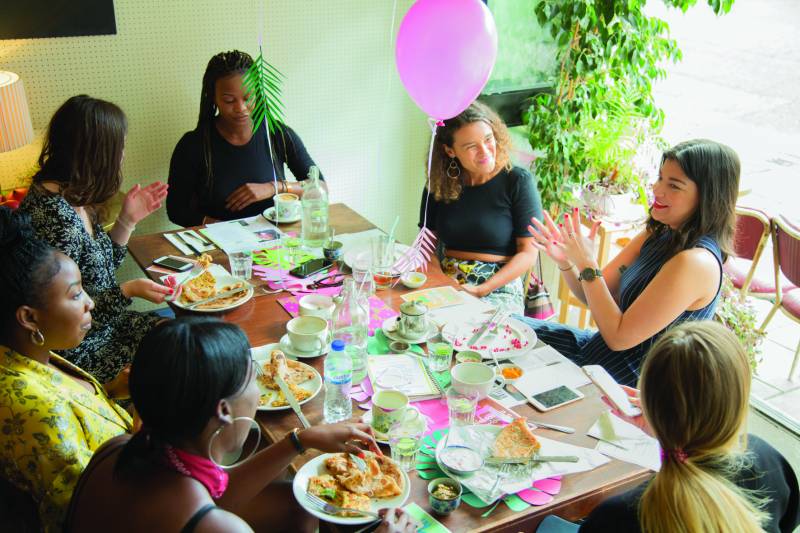
What is your earliest food memory? What childhood dish means something to you and why?
My earliest food memory is kneeling on a stool and learning how to make rotis with my mum. She would show me how to punch the dough, ‘mutthi do’, to reach the right softness, making perras by pinching the ball over the fist and pinching the edges to make the thin and fluffy rotis. Needless to say, I would manage to get flour everywhere, making odd shaped lumpy flatbreads, both my parents would pretend to enjoy!
Who else has been influential in your journey to becoming a chef?
My nani and my mum are the most important people, teaching me how to cook and master the art of Pakistani food. My father taught me the importance of hard work, focus and dedication - three vital skills to become a professional chef and work in this challenging industry.
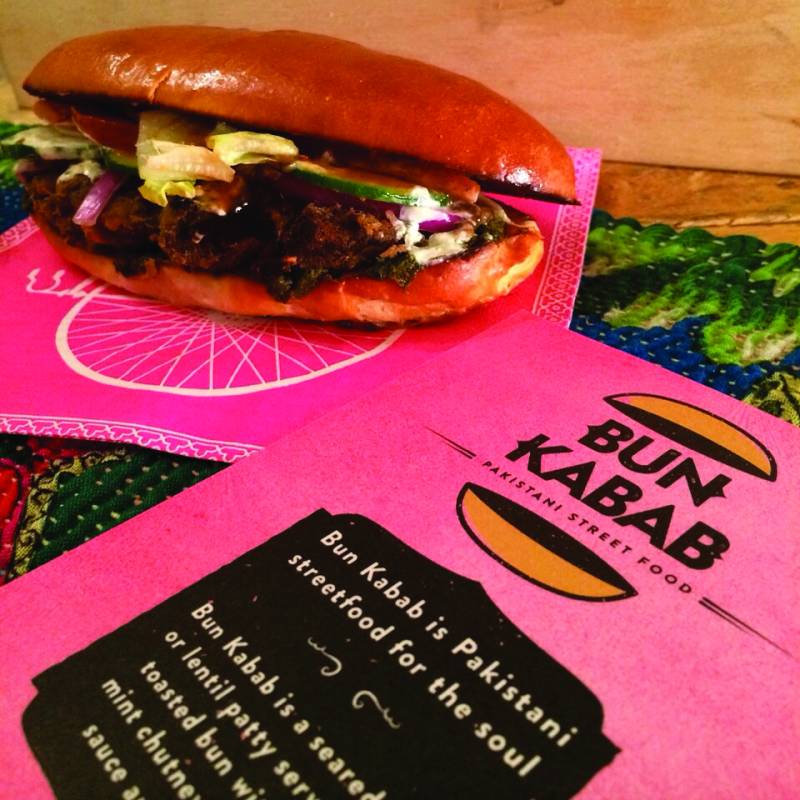
Where is your favorite place to eat in London/ Pakistan? What is your favourite dish?
London has such a diverse food scene; I could never name one dish or restaurant. I love eating at restaurants and street food stalls and could eat at a new spot for every meal! I can name a few places in Brixton, where I live - warm handmade ramen, a Japanese noodle soup with a pickled egg from 'Nanban', a chicken souvlaki, a Greek wrap from 'Souvlaki Street', Ethiopian curries with Injera from 'Asmara'. Even in Pakistan, there are so many places to eat. 'Benazir Kulfa' in Lahore is my favourite thing in the whole world!
What do you think are the biggest challenges facing female chefs today?
I think my greatest challenges have been from the men in the kitchens I have worked in. I have found they underestimated me, going as far as questioning how I’ll manage to pick up the big stick pans. I have even received derogatory messages from a junior chef who worked for me when I was the Head Chef this year, telling me I lacked the passion or skill for the role! I never fought or got angry, I simply kept my head down and worked hard. I realised the effort to prove my value to them was not worth my time. The success of running my business over the years has been enough for me, as I found my unique voice professionally.
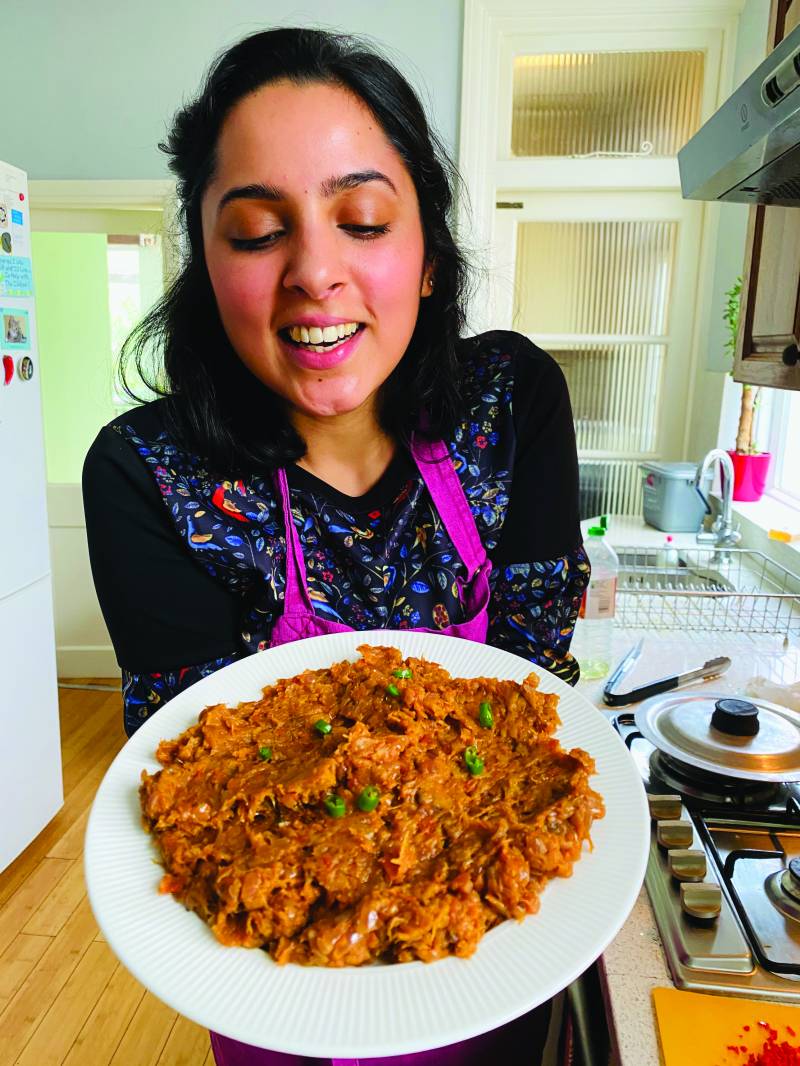
Tell us about your latest book Snacky Tunes. What kind of music do you listen to when you’re cooking?
'Snacky Tunes' is a cookbook featuring chefs from around the world sharing their food and music stories. I shared one of my favourite dishes, Baingan ka Bhurta and a selection of songs from my playlist on Spotify ‘Empress Market Choons’. Do listen! My taste in music is very eclectic, shifting to hip-hop, Pakistani pop to Nigerian funk. I like music I can sing along to when I’m cooking and the other day, I had some Lata Mangeshkar on. I surprised myself as I knew all the words to 'Aaj phir jeene ki tamana hai'.
What advice would you give to someone who is thinking of coming into the industry as a young chef?
The advice I would give to any young chef is to work hard and spend the time mastering the basics. The hours are long, and the work is very physical but if you really love what you do, the result will be worth it. It is important to be ambitious, otherwise you lose direction, but don’t jump the gun and try to open a restaurant a year into your career! Be patient, really hone your craft, and your ambition will drive your success organically.
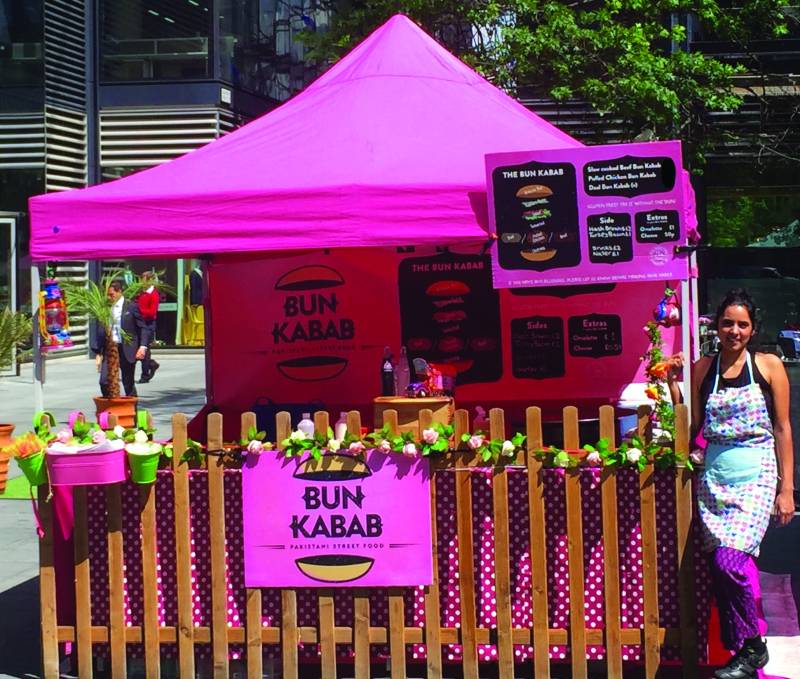
For anyone who hasn’t eaten in Empress Market before, how would you sum up the dining experience?
Eating at Empress Market is like coming into my home and listening to a food story. I share stories beyond the Pakistani borders, my immigrant heritage of my family travelling across borders from India, Lucknow to modern day Pakistan, my grandparents’ voyage to the UK where my nani conjured up the dishes of her homeland with the limited ingredients. And of course, my food future, my culinary experiences as a modern British and Pakistani woman, inspired by my background as well as the food experiences I have in London and through my global travels.
What’s next?
Like so many people, the global Covid-19 pandemic really changed my career and the future of Empress Market. I focused on consulting as a Head Chef at other restaurants in 2020. In 2021, I am hoping to develop my online presence with Empress Market and hopefully open a new permanent location for my business.
INTERVIEW: SUNDUS UNSAR RAJA
PHOTOS: COURTESY NUMRA SIDDIQUI
